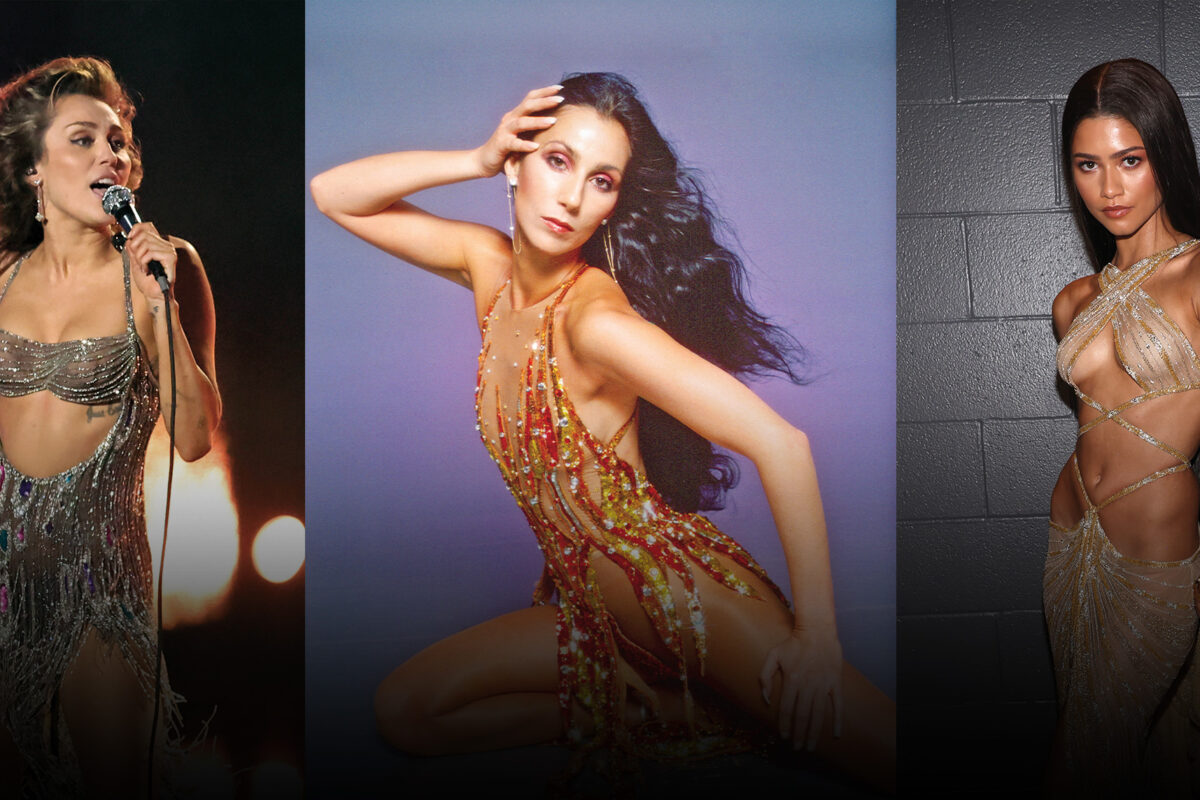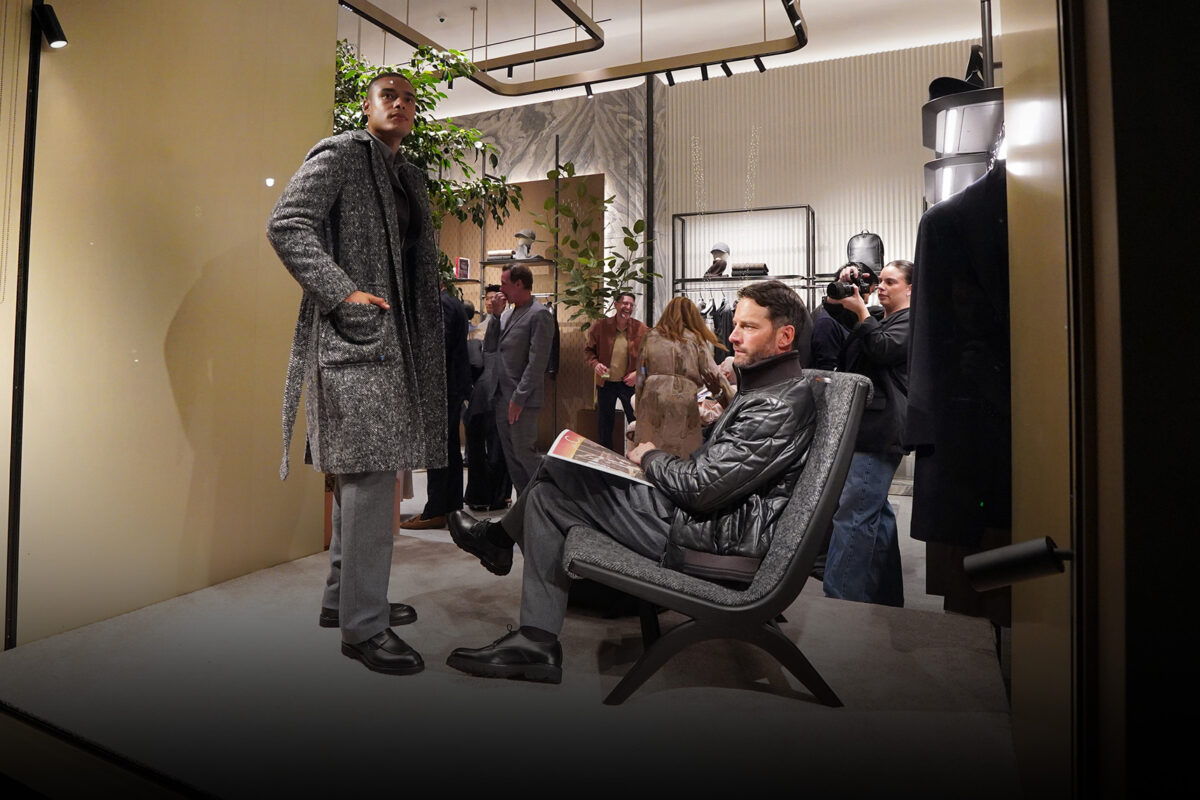With style, substance, and self-possession, Tessa Thompson is rewriting what it means to be a leading woman
Photography by KURT ISWARIENKO
Styling by KATIE MOSSMAN
Words by IRA MADISON III
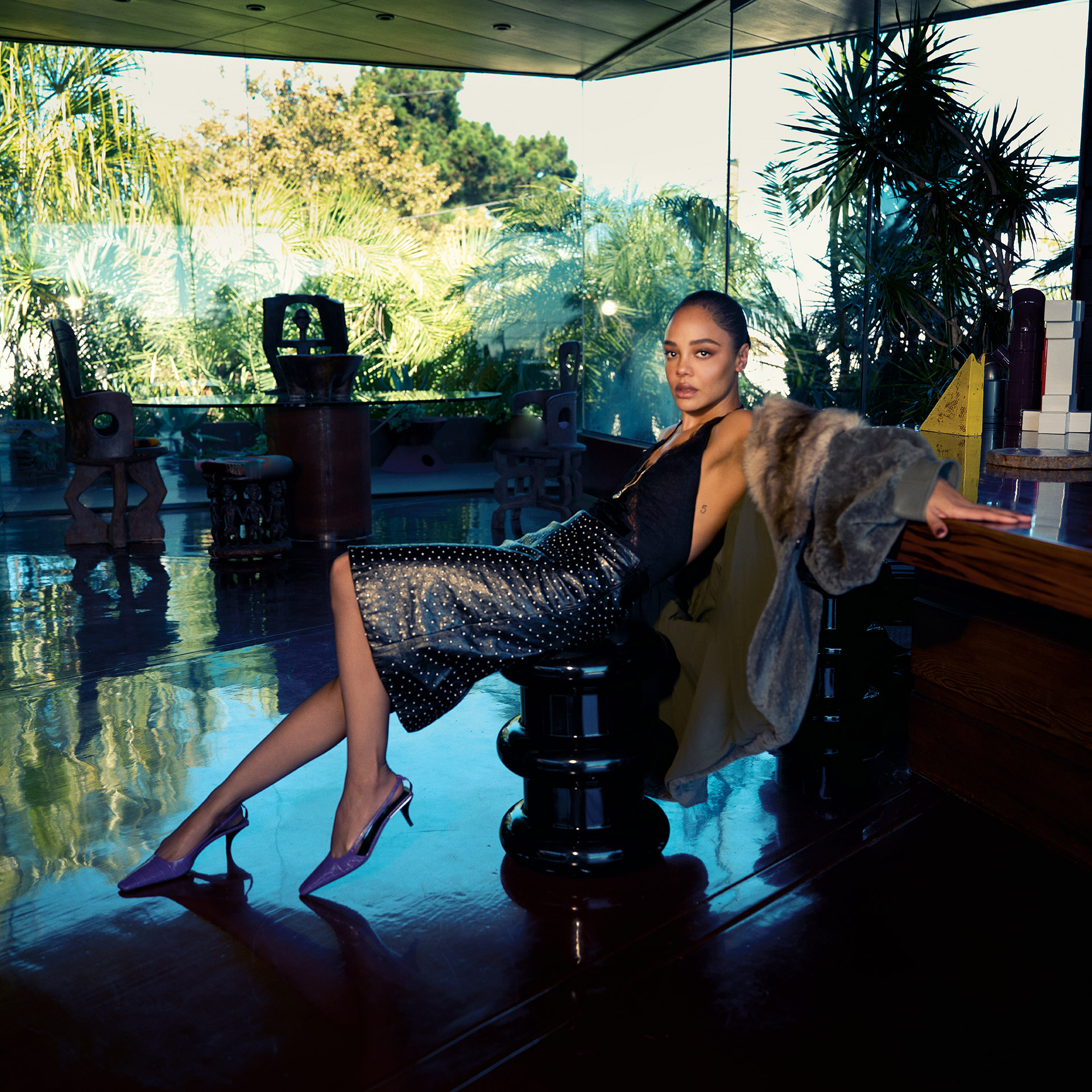
In case there was any doubt that Tessa Thompson is no longer just an actor, the first thing we discuss is books. I arrive at The Whitby Hotel in midtown Manhattan 20 minutes early to finish a novel. When Thompson arrives, cheerfully embracing me, she asks what I’m reading. “It feels like a great time for books,” she says. “I’m reading for pleasure, but I’m also reading more toward thinking about adaptation.”
Thompson has embarked on a new journey: producer. She’s already a movie star who can deftly switch between a franchise — playing Valkyrie four times within the Marvelverse and Michael B. Jordan’s musician-wife in the Creed films — as well as a capital-A actor with two BAFTA nominations: as a rising star in 2017 for Thor: Ragnarok and best leading actress in 2021 for Passing (more on that later). Next up, she’s working on an adaptation of a Katie Kitamura novel. “It’s been so incredible over the last handful of years to develop things, to learn so much ideation of story from the ground up,” she says. “To really lean in as a producer. Until we had something in the culture, it just felt hypothetical.”
We are here to have lunch, sip Arnold Palmers, and discuss Thompson’s latest film, Hedda, in which she stars as the titular antiheroine who marries into society but remains trapped in a life she never truly chose, suffocated by privilege and expectation. In one charged evening at her sprawling estate, she manipulates guests, revisits a lost love, and unleashes a cascade of desire, power plays, and emotional havoc. In the end, she stands at the edge of her own ruin — not quite broken, not quite free — with her fate hauntingly ambiguous. The role has been one of theater’s most coveted since Henrik Ibsen wrote the play Hedda Gabler in 1890, famously played by the likes of Ingrid Bergman, Maggie Smith, and Cate Blanchett.
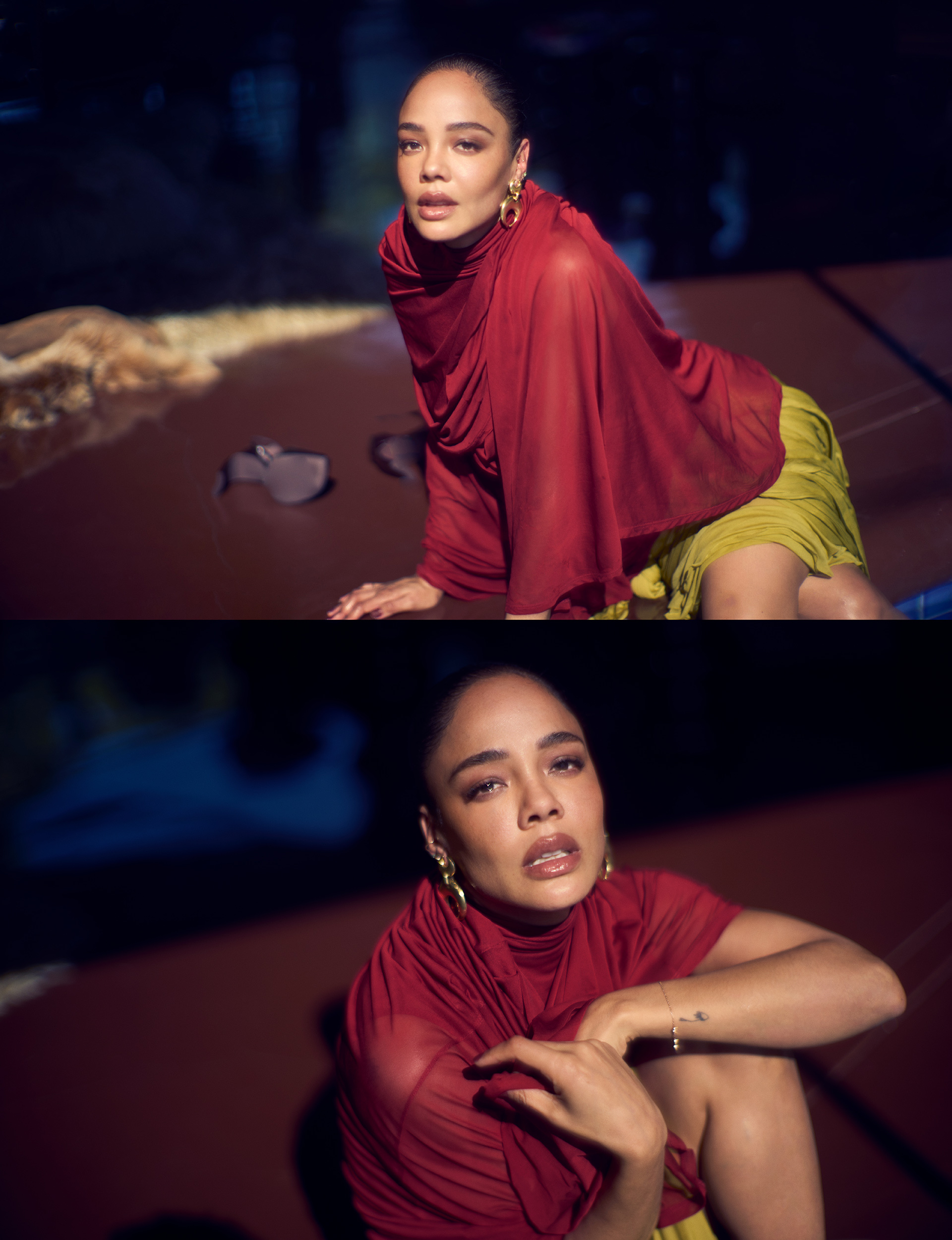
Hedda sees Thompson, 42, reunite with director Nia DaCosta. Their first film together was DaCosta’s feature debut, Little Woods, in 2018. “I also produced that, and then we became friends. I think we always felt we would work together again,” she says. In their second collaboration, The Marvels in 2023, their pairing was serendipitous because Thompson had already portrayed the character Valkyrie in three previous Marvel movies. “When Marvel plops you in somewhere, you show up,” she says. “It just happened to be Nia’s movie, which was so cool.”
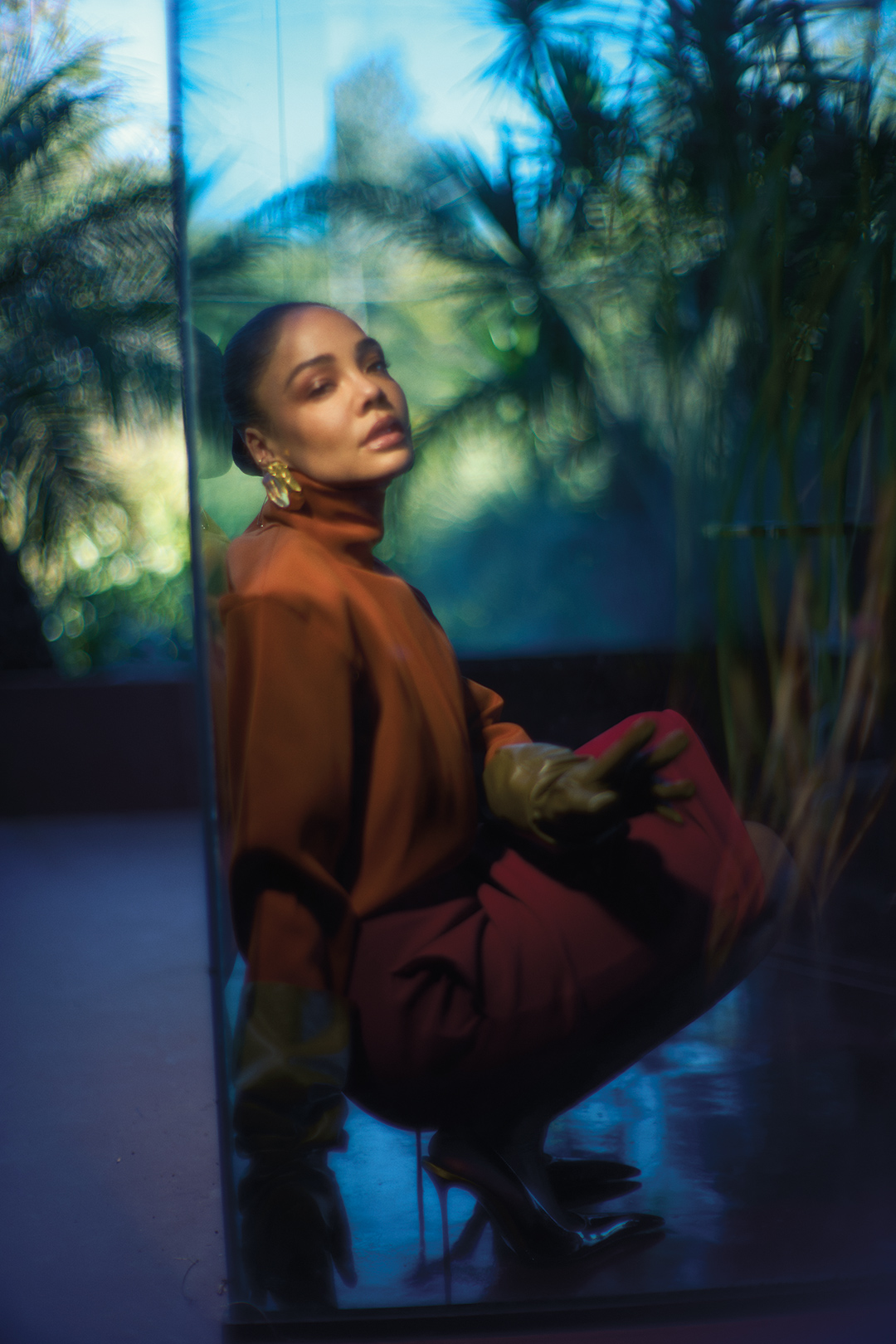
Hedda is their third film, but they have maintained a friendship that dances between personal and professional, seeking each other’s advice on scripts and life. “We were kind of shadow managers to each other; helping each other and staying really supportive as friends,” Thompson says. “But then she called and said she was thinking about an adaptation of Hedda Gabler. I thought it was so brilliant. For her, it was wanting to return — after being in sort of these bigger studio spaces — to get back to making something that felt like she had more creative control.”
Thompson was already familiar with the source material, having studied classical theater as a teenager in Santa Monica. “I read A Doll’s House when I was 16 and really fell in love with Ibsen,” she says. “One of the things that first interested me about his work is that at the end of [A Doll’s House], Nora leaves her children. I had always assumed that if you’re a mother, you’re forever a mother. This idea of deciding to make another choice felt surprising, maybe because I was raised in part by a single mother. I was so aware of watching her and realizing that because she had made this choice to have my sister and me, there were all sorts of choices that she could probably not make. I think about that in relation to my life now. So much of the piece, and playing Hedda in particular, is about playing a person who has woken up inside of the choices they’ve made and realizing those choices are not their own. And then wanting to burn everything down.”
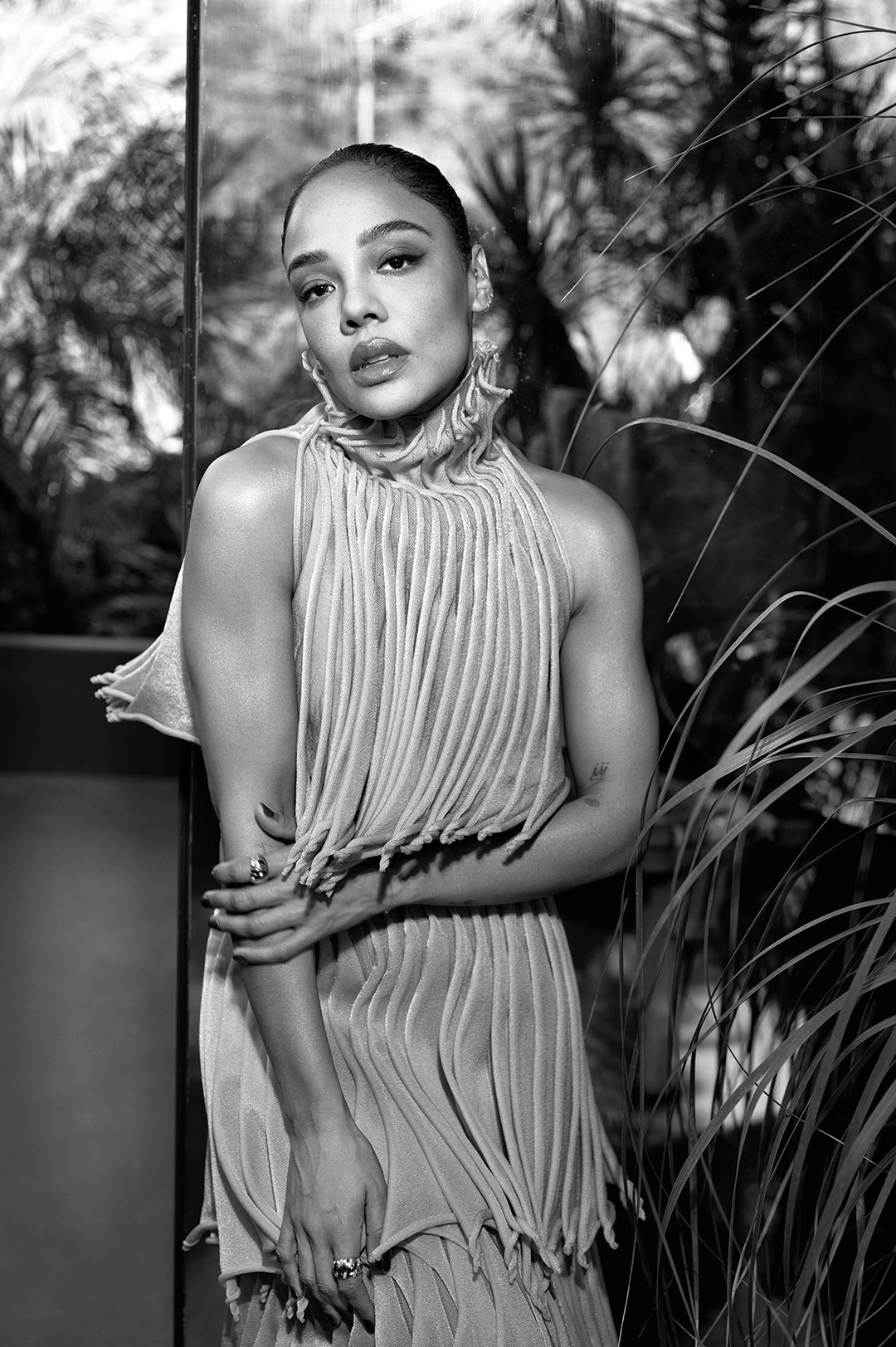
DaCosta’s adaption is all about motherhood, and Thompson finds herself thinking about her choice not to become a parent. “I think there are certain things that I have probably been able to do in my career, or how much of the world I’ve seen, or the kind of autonomy or freedom that I feel, that I’ve always felt inside of my life and my choices. That has a lot to do with the fact that I don’t have children,” she says. “But I also think my relationship to my work — and how much of my identity sometimes I have felt gets entangled in that — also has to do with the fact that I don’t have children. It can be a very vulnerable thing to unpack and deal with as a woman.”
“I don’t have children. It can be a very vulnerable thing to unpack.”
tessa thompson
Discussion turns to Diane Keaton, who died shortly before our interview. “I’m a massive fan. But so much of what was written about her centered around how she never married and didn’t have, or adopt, her children until she was in her 40s,” Thompson says. “I think we still live inside a culture where we define women by the choices they make. I don’t know that I have a salient, complete thought, but it’s something I wrestle with a lot.”
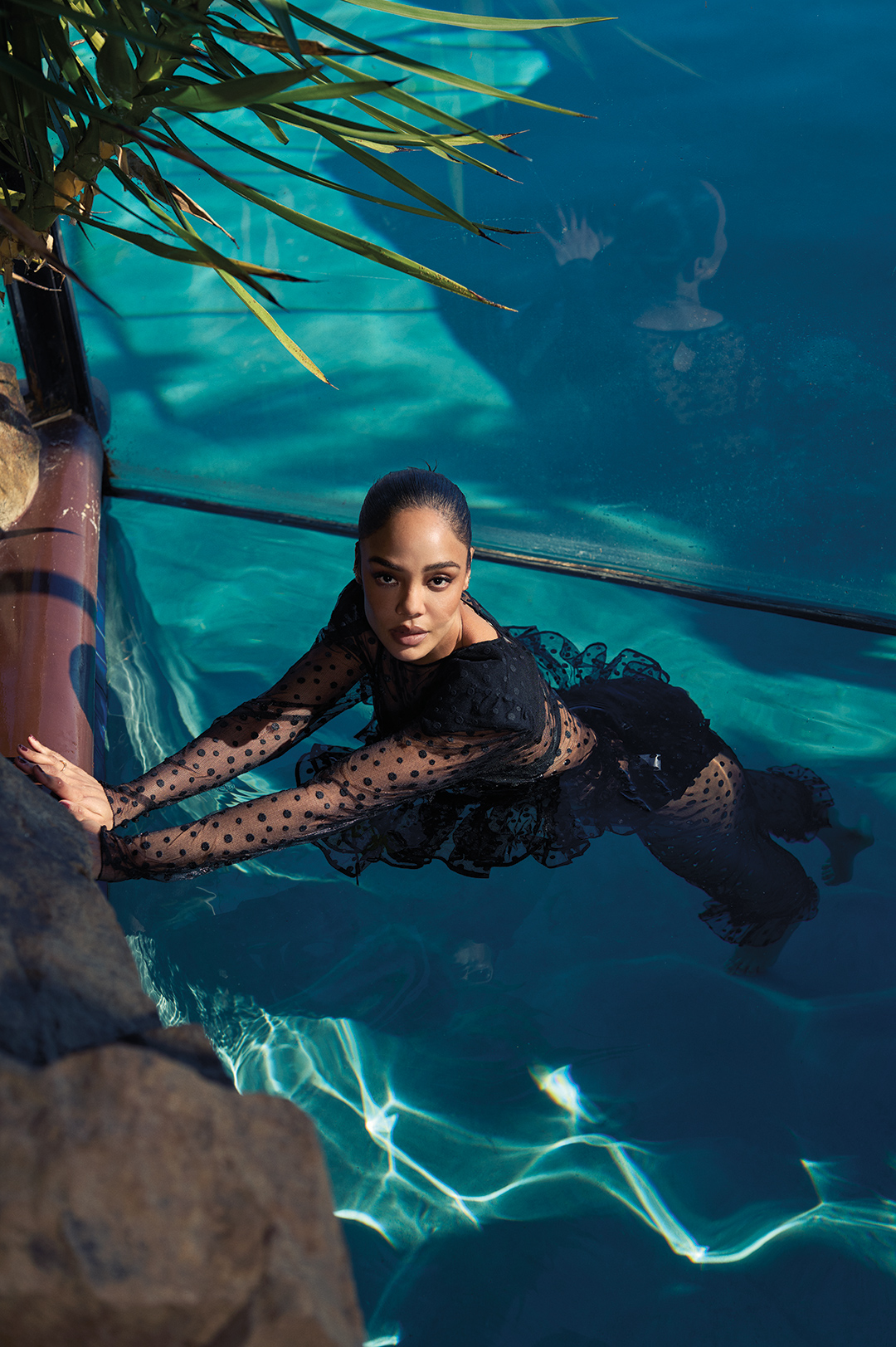
Before the premiere of Hedda, the last time I saw Thompson was three years ago for her birthday and the launch of Viva Maude, a production company she began with producer Kishori Rajan. Its mission statement, as described by Rajan, is “reclaiming who gets to be in the center of the frame and finding new ways into stories we thought we already knew.” Thompson credits Passing with helping her realize her love for adaptation. The film, directed by Rebecca Hall, starred Thompson as a light-skinned Black woman with a childhood friend (played by Ruth Negga) who has been passing as a white woman. “That prose [in Nella Larsen’s 1929 novel] is so beautiful,” Thompson says. “Married with what Rebecca Hall did so brilliantly with the adaptation, it felt like I had this piece of music I was playing, because I could always go back to Nella’s prose. And the viscera of the way she describes Irene’s experience is such a gold mine for an actor. It made me really interested in challenging books and trying to understand how to make a cinematic comparative for them.”
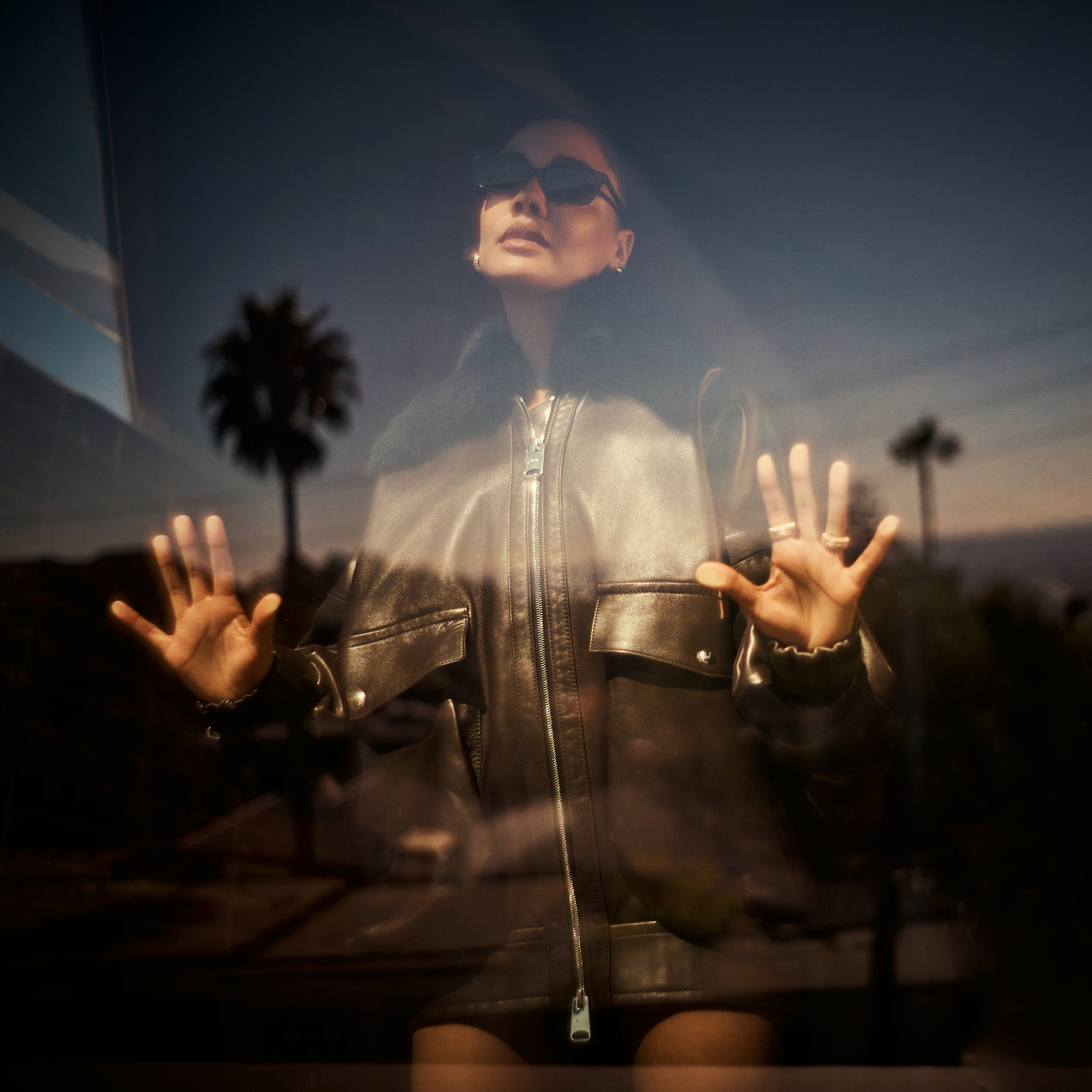
Nina Yang Bongiovi, a producer on Passing, told Thompson she thought like a producer and should think about becoming one. “I produced [Passing], but it was more in the way that an actor comes in, and you give some ideas, and you’re generous with your time,” she says. “But really producing on the ground, having to solve problems and see a project from inception to post and distribution and exhibition, is a completely different beast.”
Thompson addresses the irony of starring in Passing: “I sort of pass as an extrovert in this business. I pass for someone who doesn’t experience social anxiety or self-consciousness.” Although she seems to exude self-assurance, she describes her style as a bit more musician-like, thanks to Grace Jones, Prince, and David Bowie, all of whom live within a performance. “I’ve heard actors say they see fashion as a kind of armor. I think a past version of me felt like I needed to be armored more because of the anxiety I felt entering some spaces. I also think about my early experiences growing up, where I was kind of one of one in a lot of spaces, until I could get to schools where that wasn’t the case. But I would walk into spaces and everyone would be looking at me. From early on, fashion was a way to be like, ‘Well, you’re staring at me anyway, so let me give you an actual reason to stare.’”
A third-generation Californian, Thompson was born mixed race and attended Santa Monica High School, living part time with her mother, a painter and ceramist, and her father, a musician who started the musical collective Chocolate Genius Inc. “I love California,” she says. “It’s so rich culturally. My mom is half Mexican. My grandfather came from Mexico and eventually settled in California. I don’t eat Mexican food anywhere else in the world.” She grew up going to see Thanksgiving movies at theaters like the Grauman’s Chinese, where she would later appear on the red carpet at the Thor: Ragnarok premiere. Her first Hollywood apartment was a studio off Hollywood Boulevard.
“From early on, fashion was a way to be like, ‘let me give you an actual reason to stare.’ ”
tessa thompson
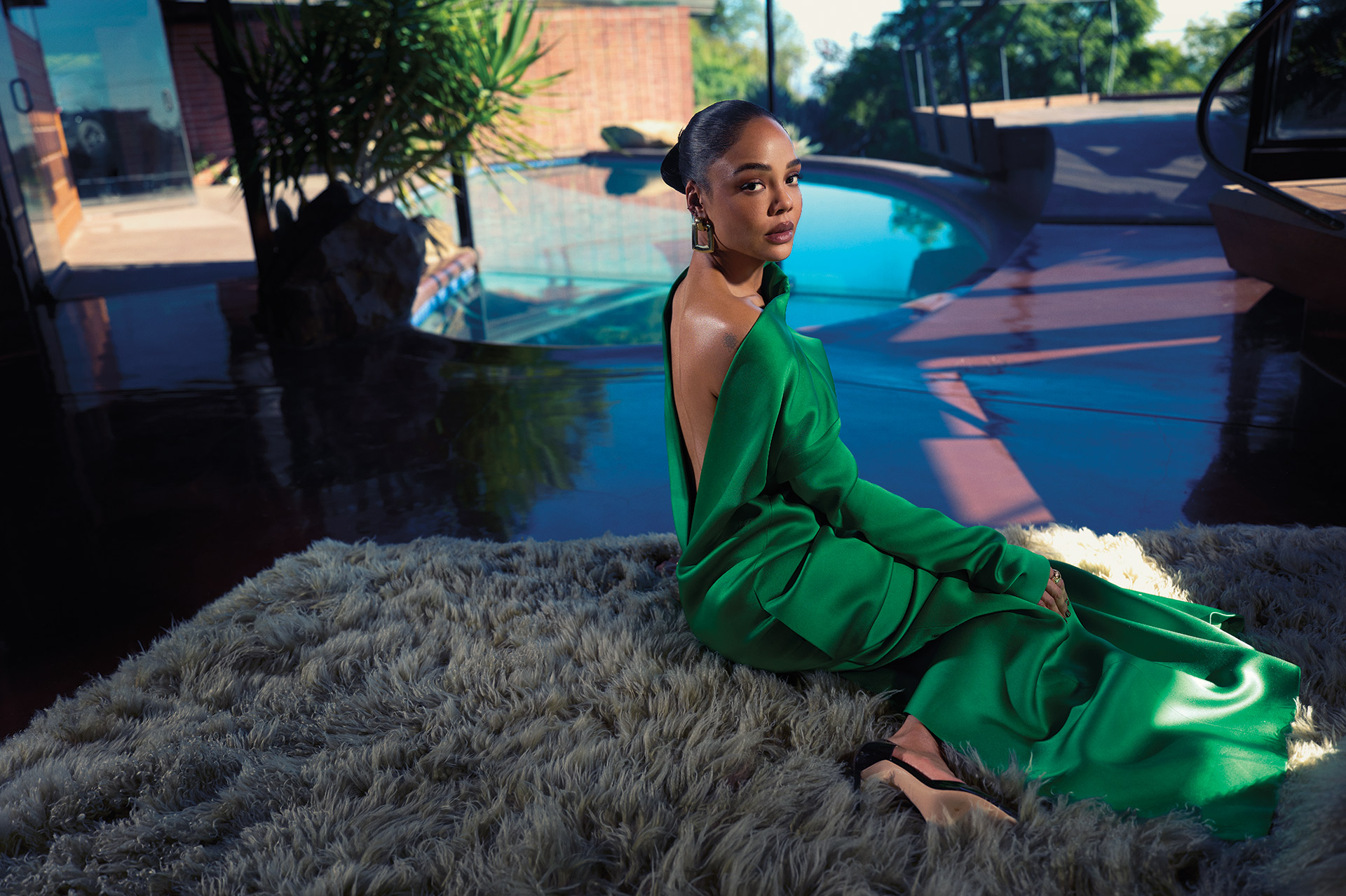
With the help of her stylist, Karla Welch, Thompson has been nailing her red carpet looks this year, recently donning a piece from Pierpaolo Piccioli’s Balenciaga debut at the annual Academy Museum Gala in L.A. and a shimmering high-necked Gucci number with an open back to the LACMA Art+Film Gala. “I’m really interested in identity and how we construct it,” she says. “Maybe because of the early things that I was interested in as a kid, or as an early performer, were all sort of masters of identity. That’s one of the reasons I love Eartha Kitt and other people who made up themselves. But their constructions are also expressions of their real and truest ideals. They were pushing us culturally toward a kind of freedom and singularity. I am interested in how you construct a persona as a way of also reserving privacy, in a weird way. You make a thing that people can engage with, full stop, and it becomes your avatar. But behind the avatar is your own mushy private self.” Thompson has spoken openly about being attracted to both men and women, but she keeps her personal life to herself.
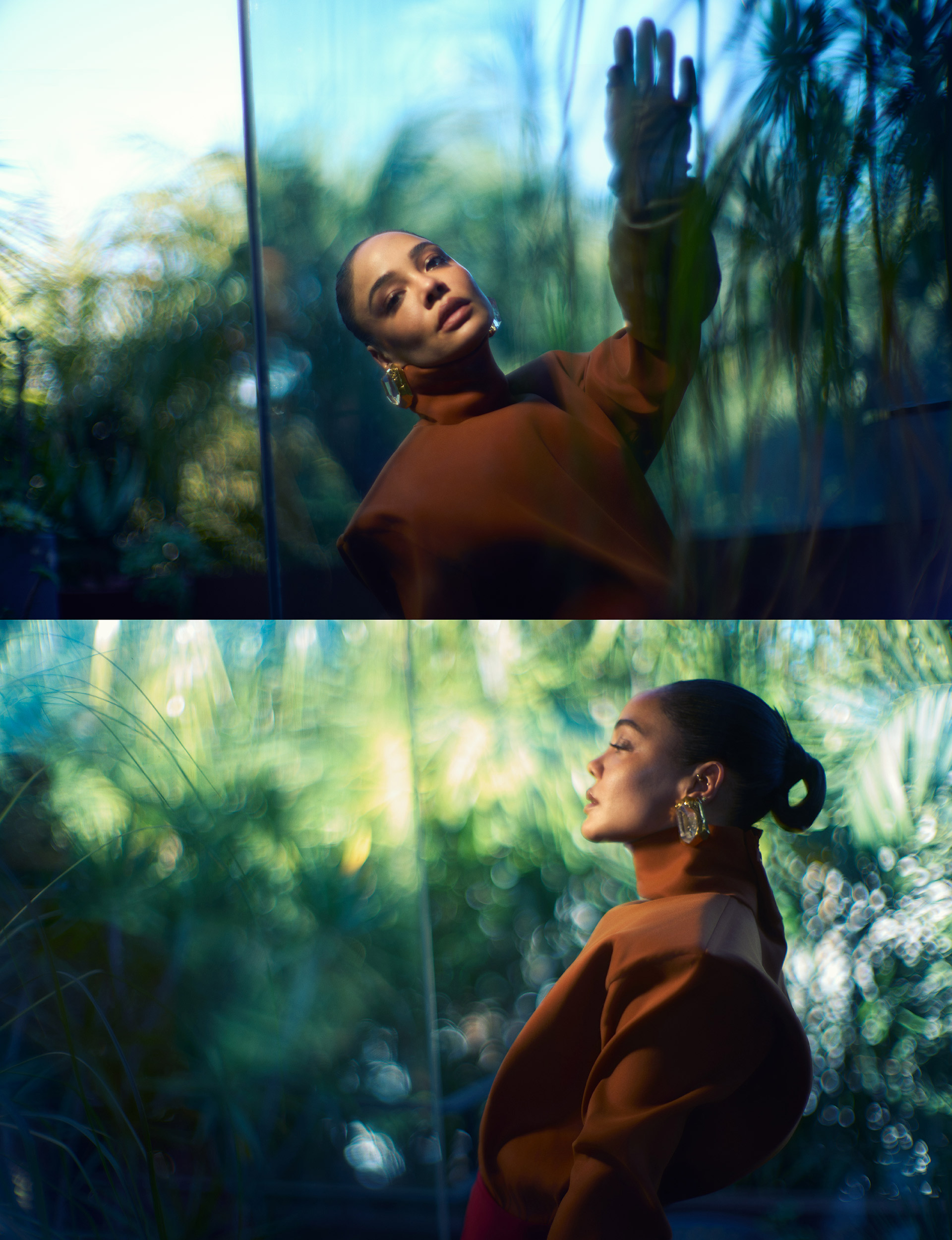
Coming up is His & Hers, a psychological thriller premiering on Netflix in January. The six-episode series follows Anna — both victim and investigator, played by Thompson — a former Atlanta news anchor who returns to her Georgia hometown to chase a murder story and collides with her estranged husband (Jon Bernthal), the detective on the case. “At its core,” Thompson says, “it’s about truth — how dangerous it becomes when shared between two people who once loved each other.”
“When Marvel plops you in somewhere, you show up.”
Having already conquered movies and TV, theater is her next big challenge. “I feel not only compelled to do that; I sort of fundamentally feel like I have to,” she says. “Hedda reminded me of what I’ve missed. I love making films, and sometimes the experience can feel very siloed, and I long for the experience of the ensemble and the company. I went to see Oh Mary! [and] this amazing one-person Broadway show called Can I Be Frank? Both are wholly original and really personal. I found them really exciting in terms of new works and what’s possible on stage now. I need to understand more about it because I don’t know anything about producing theater. But it feels like it would be a natural extension of where I come from and what I’m already doing.”
And for her next act, Tessa Thompson isn’t chasing the spotlight — she’s building the stage.
Hair by KIM KIMBLE at The Only Agency.
Makeup by ALEX BABSKY at The Visionaries Agency.
Manicure by ERI ISHIZUI at The Wall Group.
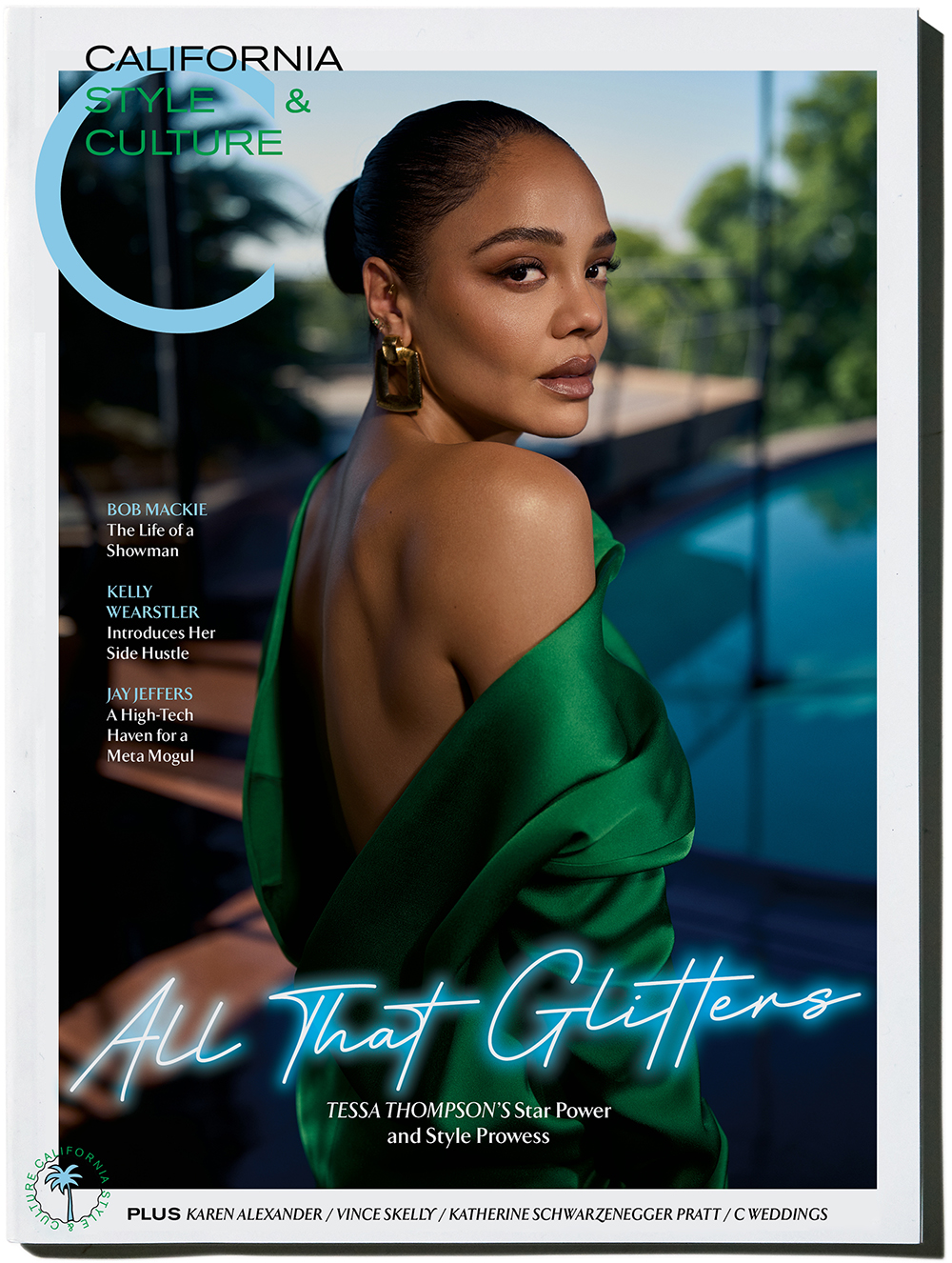
Feature image: PRADA sweater, $3,400. HARRY WINSTON earrings, price upon request.
This story originally appeared in the Winter 2025 issue of C Magazine.
Discover more STYLE news.
See the story in our digital edition


